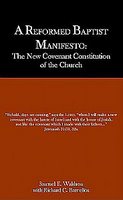I managed to catch the speaker later that evening. I asked a point blank question. Do Jews need to believe in Jesus now, or are they still under the Old Covenant and a distinct people of God from the Gentile church. I'll never forget his response. He quoted Acts 4:12:
Then he said something which amazed even himself. He said, "I am always amazed when a Jewish person reads the New Testament and does not see Yeshua as Messiah. I am equally amazed when a non-Jew reads the New Testament and is able to understand it. For it is an extremely Jewish book."
"And there is salvation in no one else; for there is no other name under heaven that has been given among men by which we must be saved."
I agree. The New Testament is an extremely Jewish book. This caused me to question some of my beliefs in a system that at the time I didn't even know the name of yet. After hearing Christian preachers such as John Hagee explain that Jews are still saved under the Old Covenant, I began to see that Dispensationalism had inherent flaws. Yet I had no knowledge of any other system. I simply assumed that everyone believed in Dispensational theology.
Some years later, I read a debate book on differing views of eschatology. After reading that book I became convinced Dispensationalism is in fact a great error. The verse that put me over the top was that Jesus is already sitting on the throne of David and is sitting at the right hand of the Father according to Hebrews 1. Therefore there is no need of Jesus coming to sit on an earthly throne when He already rules and reigns from an established throne.
I have still struggled through the years though. I am a subscriber to a semi-annual publication called the Reformed Baptist Theological Review. I have been reading about Covenant Theology for quite some time. Only recently have I become absolutely convinced of Covenant Theology. I am finishing a book called A Reformed Baptist Manifesto: The New Covenant Constitution of the Church by Sam Waldron, sold at Solid Ground Books.
 This is a must read for any layman. It is simple, and (even better) it is short (102 pages). You do not need to be reformed or a Baptist to read this book. If you want a simple overview of the nature of the New Covenant as established by Jesus Christ, then this book is a must read.
This is a must read for any layman. It is simple, and (even better) it is short (102 pages). You do not need to be reformed or a Baptist to read this book. If you want a simple overview of the nature of the New Covenant as established by Jesus Christ, then this book is a must read.Sam Waldron explains Covenant Theology while contrasting it with Dispensationalism, Antinomianism (against law), Arminianism and Paedobaptism (infant baptism). He then comes to a conclusion of a Reformed Baptist Manifesto.
I would also suggest listening to his four part Eschatology series. After reading his simple book and listening to his lectures, I think you'll agree that Dispensationalism is a system with serious flaws, and Covenant Theology (from a Amillenial viewpoint) is a system taught all through the pages of Scripture explaining Redemptive History in a systematic fashion. part 1, part 2, part 3, part 4






2 comments:
What an intriguing story about your conversation with the Messianic Jewish believer. I have to echo his sentiment from the Gentile perspective. I was not raised as a Christian -- I became persuaded about Christ in college. And it amazed me how much of a cross-cultural flip I had to make in order to understand the Bible. This may be the understatement of the century, but it's not an American book at all. There were all kinds of things I needed to learn in order to make sense of Scripture. How strange that in becoming a Christian I would become a de facto student in ancient Jewish culture.
Several years ago, Jews in New York City were upset when Billy Graham was getting ready for a crusade there, and he reassured them by saying he wasn't coming for them -- that God had a different plan for them. I had deep misgivings about that. To me this issue is laid out pretty clearly in John chap. 1: "He came to that which was his own, but his own did not receive him. Yet to all who received him, to those who believed in his name, he gave the right to become children of God -- children born not of natural descent, nor of human decision or a husband's will, but born of God."
I haven't read much eschatology but I tend your way in terms of believing that the cross has already accomplished all. I should study this more. And I don't know much about Reformed Baptist theology inasfar as it differs from Reformed Presbyterian theology. I doubt I'll get to the book, but I'm grateful for the audiolinks and will give them a good listen when I've got some time.
Just found your stimulating blog. If you'd like to see some newly discovered facts about the popular rapture belief, hit Google or Yahoo, typing in "Pretrib Rapture Diehards" (& don't miss LaHaye's hypocrisy in item "1992"). The new info also states that Darby wasn't first on any of d-ism's key aspects! A truly exciting read!
Post a Comment